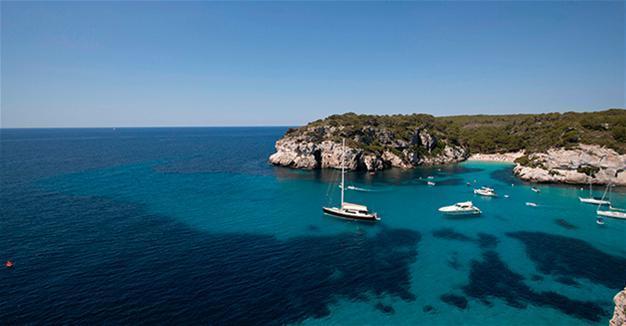Spain expects another bumper year for tourism
MADRID - Agence France-Presse

AFP photo
Spain’s tourism sector is poised for another bumper summer season as security concerns continue to lure visitors away from rival destinations to its cities and beaches, industry lobby group Exceltur said on July 13.
Tourism activity will increase by 4.1 percent in 2017, Exceltur -- which groups Spain’s major hotel chains, travel agents, tour operators and airlines -- said in a statement. It had previously forecast an increase of 3.5 percent.
The body said the higher forecast was mainly due to the “strong increase in foreign demand, which was higher than forecast.”
Spain has also benefited from a sharp rise in visitors to its cities during the first half of the year due to the arrival of tourists “who should have visited other European capitals but finally chose Spain” due to recent attacks in other capitals like London and Paris, Exceltur vice president Jose Luis Zoreda told a news conference.
About 2.7 million foreigners visited Madrid between January and May, a jump of 19 percent over the same period last year, according to the latest figures from national statistics institute INE.
At the same time, coastal regions continue to benefit from western European tourists shunning rival sunshine destination such as Turkey and Egypt over security concerns, according to Exceltur.
Turkey and Egypt have seen their visitor numbers rebound, but this is mainly due to a rise in the number of tourists from the Middle East and Eastern Europe, Zoreda said.
Nearly 14 million tourists have been “loaned” to Spain by other destinations that have suffered terrorist attacks, he added.
Britons remain the biggest group of tourists to Spain by nationality, Zoreda said.
“The Brexit effect has not been felt, quite the opposite,” he said.
The number of visitors from the United States jumped by around 19 percent during the first five months of the year, while visitor numbers from Asia were up by around 35 percent during the same period.
But Exceltur said it was worried about a decrease in the average length of stays and of the “congestion” of visitors at tourism hot spots like Barcelona and the Balearic Islands which is sparking a backlash from locals.
It blames the sharp rise in the number of illegal lodgings for tourists -- a jump of 37 percent between March and May alone -- for the problem.
Spain received 75 million visitors in 2016. It was the fourth consecutive year of record numbers of arrivals.
